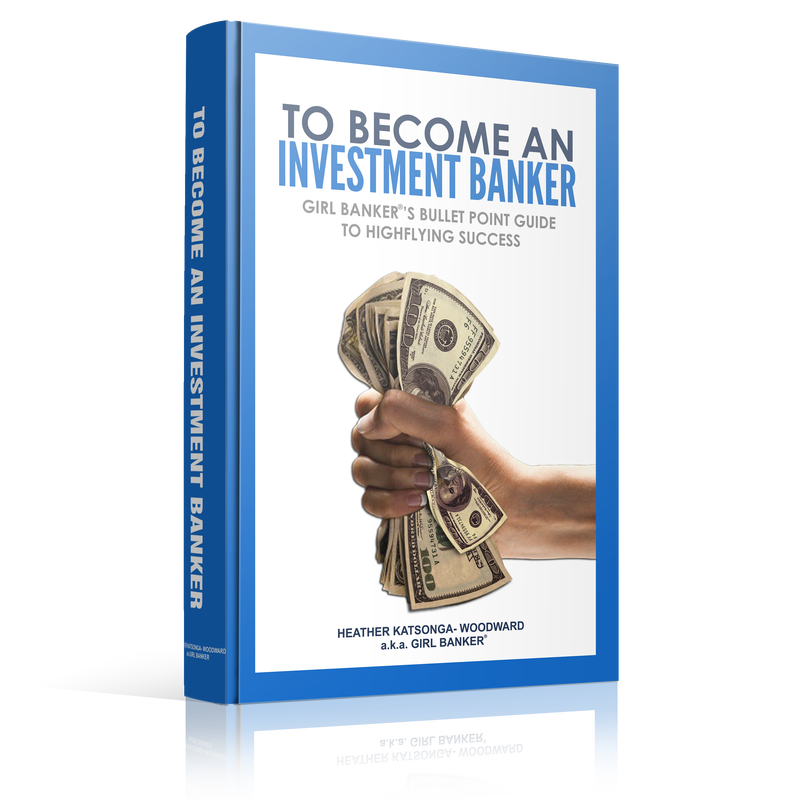 by Girl Banker Listen to the iTunes podcast instead. I get asked a question related to this topic every single week! The answer is yes but even from target universities they are looking for the best of the best. First off, let's define what we mean by "target universities": Every major investment bank has an annual hiring cycle. The human resource department has a limited budget to spend on recruitment and as such will choose a handful of universities to focus their recruitment efforts on. These form their "target universities". As a target university, that institution will get:
Students from target universities do not get their applications looked at in preference to students from non-target universities. That said, because of the extra effort in recruiting from a specific campus the investment bank will receive more applications from their target universities. Fewer students from non-target universities have the relevant information and as such will apply in smaller numbers. The top investment banks will have the very top universities on their target list. Mid-ranking investment banks are realistic and will include mid-ranking universities on their target list because they have lower potential to attract students from top institutions. Here are three example emails that I have received in relation to recruitment from non-targets: Email 1 - a high potential candidate from a non-targetHeather, Thank you very much for your time! I recently purchased your book and I absolutely love it; it was the exact kind of information I was looking for! With that being said, I have recently become interested in pursuing a career in investment banking. However, I am worried that my current/past experience will prevent this from happening. Without sparing too much of your time, I went to a mediocre school for my undergraduate degree (University of [Blah], USA). I majored in engineering and economics, the former being my original career goal and the latter a result of going back to school because of the economic crisis. My GPA was 3.0 due to a lack of effort on my part. I did not participate in many clubs or extracurriculars in school, which of course I regret now. Anyways, I have worked in both fields since graduating in 2010, and have concluded that engineering just isn't for me. So I am considering changing careers into finance, specifically investment banking. FYI, the extent of my experience in finance was getting FINRA Series 6 & 63 licensed and working at a company that manages retirement plan accounts. I would deal with all account information, withdrawal requests, deferral changes, plan inquiries, trade requests, etc. I am concerned that my school, my mediocre GPA and my lack of experience will completely prevent me from getting any kind of job in this field. I view my engineering degree as an advantage in the sense that it shows technical and time/project management expertise, but the more I read about IB the more I am realizing that I would be competing with people that have gone to top tier schools, gotten excellent grades, participated in all relevant social groups and school orgs, and hooked an internship at a big bank while in school. How am I supposed to compete with this?! Is there any hope? I know you offer consulting, and I was hoping such a simple question wouldn't fall under that. I guess I am just looking for an answer to this question from an IB so that I know how to move forward or at the very least don't waste my time trying! Thank you again! Best Regards, [American Guy] Email 2 - a low potential candidate from a non-targethi I am emailing you regarding the coaching sessions you give to students who trying to get a foot in to the IB industry. i would like put a strong point forward i know the competition is tough out there in this disastrous period we are seeing in the economy but for stuudents who do not come from the top target universities, dont stand a chance in this industry espcially if we are looking for roles in sales and trading its more about the univeristy reputation these days to those applying to bulge bracket banks as i have noticed from yourself who went to cambridge all i see is all top universities which is when i look at the people who have been offerd interhsips. Its very unlikey to catch a non target school who gained a internship. The reason i say this is that i am extremely passionate about working in the financial markets as i am stuyding my degree in investment banking banking and finance at a school who specifically teach you the detail knowledge of the financial markets ,but i am being held back by the reputation of the school as its not a target and the HR don't think these days will invite students from a non target school for an interview i am currently going into my third year so what do i do ? how can you help me ? i know what i have just stated is quite negative but i think if i am so passionate i should given a chance thank you h [UK Student] Email 3 - a 15 yr old with major Ivy League potentialHi Ms. Katsonga, my name is [ ]. I am a 15 year old independent equities and bond trader. I am intrigued by investment banking. I am ordering your book on Amazon and would like to ask a few extra tips from you directly. What degree do you recommend to be well prepared for banking? Will it help a great deal in my application process the fact that I have a trading track record since I was 15 with high returns? Or with your experience is that easy to come across by and not something investment banks value. When should I do my CFA? After my degree, during work? And what else stands out on a resume for investment banks? Your book might answer these already when I receive it but it's not always the same as speaking directly to a person. I really appreciate your expertise. I really love your videos because they are very concise and 'to the point'. I would extremely appreciate and value a response. Sincerely, [Boy in Canada] EMAIL ANALYSISI thought this sample of three emails is adequate to get my point across.
Part of the reason that students from the best universities stand a better chance is that they are taught or they find out for themselves "the rules of the game"; in addition to going to a top university they: a) Get coaching (I did too) b) They seek out services for mock interviews c) They make sure their application is written in great English with no grammatical errors and d) They do A LOT of research. For instance, let's take a look at email 2 - it's full of grammar errors and even has some spelling errors. There was no subject on the email; it didn't address me directly and it was not signed off properly etc. Investment bank recruiters are VERY critical and they would reject an application for as small a transgression as not capitalising the "i"s. Do you see where I am going? Now look at email 1: it's very well written, has a great structure, addresses me correctly and conveys the keenness of the writer perfectly. Similarly, email 3 is extremely polite and one can immediately tell the writer is a high achiever. The young man in email 3 actually thought there are many people his age dabbling in share dealing. I was so intrigued that I wrote back to find out more about him. He's the type of guy you really want to help get in front of the right people and that is the crux of getting a job in an investment bank: you need to portray yourself in a way that makes people immediately want to help you! Students from target universities do not get in just because of the institution they are from. If you are serious about getting into an investment bank you need to be at the top of your game.
0 Comments
|
Girl Banker®I created my investment banking blog in 2012 as soon as I resigned from i-banking & published my book, To Become An Investment Banker.
Initially published at girlbanker.com, all posts were later subsumed into my personal website under katsonga.com/GirlBanker. With 7 years of front office i-banking experience from Goldman Sachs and HSBC, in both classic IBD (corporate finance) and Derivatives (DCM / FICC), the aim of GirlBanker.com was to make it as straight-forward as possible to get into a top tier investment bank. I'm also a CFA survivor having passed all three levels on the first attempt within 18 months - the shortest time possible. Categories
All
Archives
August 2017
|
Heather Katsonga-Woodward, a massive personal finance fanatic.
** All views expressed are my own and not those of any employer, past or present. ** Please get professional advice before re-arranging your personal finances.

 RSS Feed
RSS Feed





